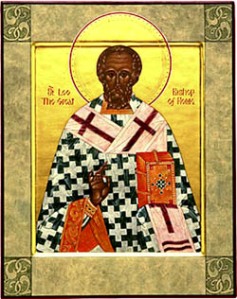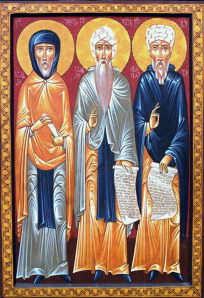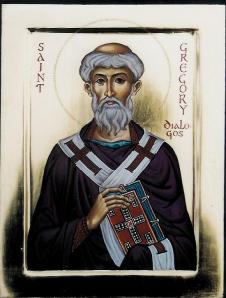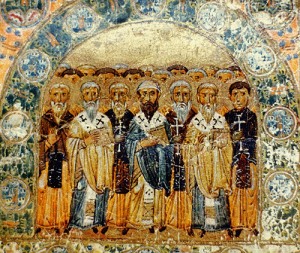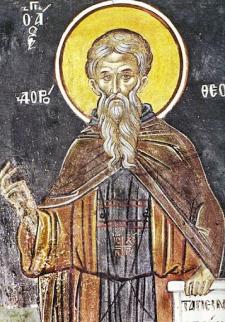 Continued from here….
Continued from here….
Let us strive to preserve our conscience while we are in this world, let us not allow it to refuse us in any matter.
Let us not trample upon it in any way, even in the smallest thing.
Know that from disdaining this small thing which is in essence nothing, we go on to disdain also a great thing.
[…] One may begin to say, “What does it matter if I say this word? What does it matter if I eat this thing? What does it matter if I look at this or that thing?”
From this “what does it matter about this or that?” one falls into a bad habit and begins to disdain what is great and important and to trample down one’s conscience, and thus becoming hardened in evil, one is in danger of coming to complete lack of feeling.
Wherefore guard yourselves, O brethren, from disdaining what is small, guard yourself from trampling upon it, looking down upon it as something small and unimportant.
It is not small, for through it a bad habit is formed. Let us pay heed to ourselves and be concerned for what is light while it is still light, so that it will not become heavy: for both virtues and sins begin from the small and go on to become great good and evil.
Therefore the Lord commands us to preserve our conscience and, as it were, He especially exhorts each of us, saying: “Look what you are doing, unfortunate one! Come to yourself, be reconciled with your adversary [i.e. your conscience] while you are in the way with him.”
[…] In relation to God, a man preserves his conscience if he does not disdain God through His commandments; and even in what people do not see, and in what no one demands of us, he preserves his conscience towards God in secret.
For example, one may have grown lazy in prayer, or a passionate thought has entered his heart, and he did not oppose this and did not restrain himself, but accepted it; or when one has seen his neighbor doing or saying something and, as it often the case, he judged him.
In short, everything that happens in secret, which no one knows except God and our conscience, we must preserve; and this is preservation of the conscience in relation to God.
And the preservation of the conscience in relation to one’s neighbor demands that we do nothing at all which, as far as we know, offends or tempts our neighbor by deed, word, appearance, or a glance.
Dorotheos of Gaza (505-565 or 620): Conference 3 – On the Conscience @ Pravoslavie.
